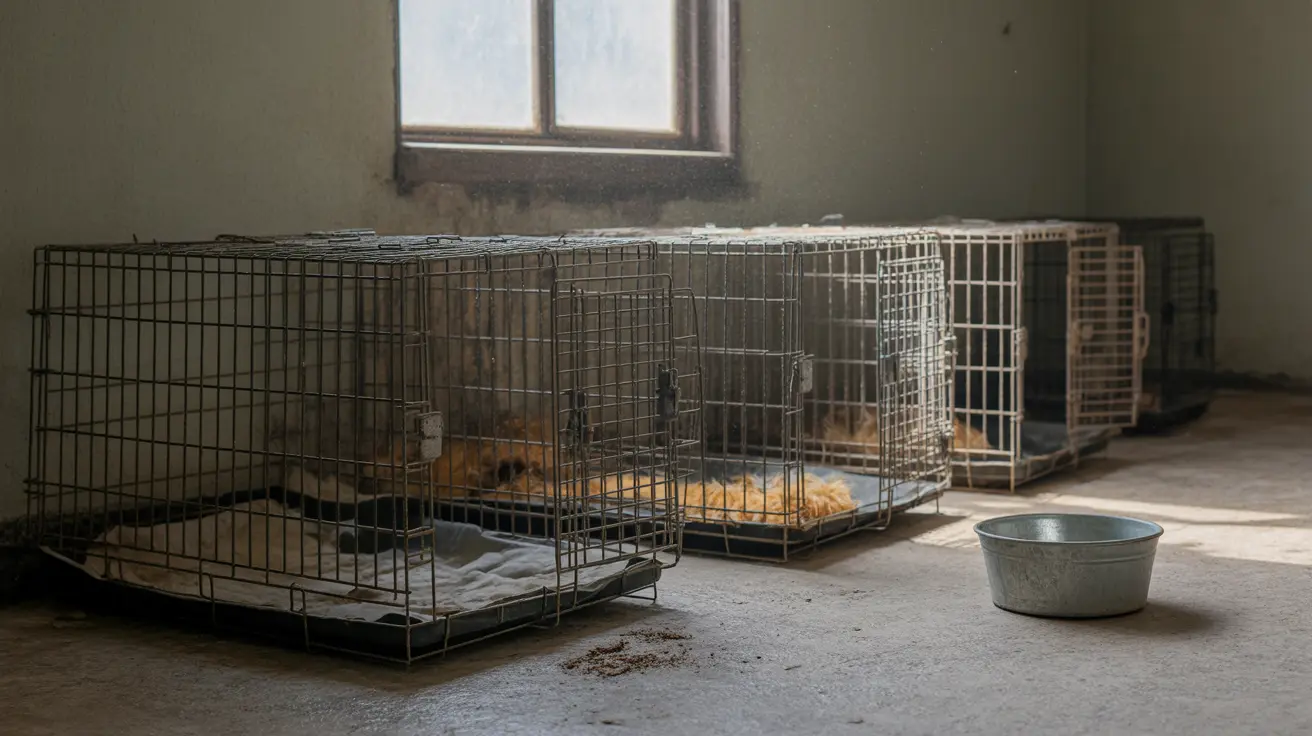Have you ever noticed your dog repeatedly licking the air and wondered what's behind this peculiar behavior? This seemingly odd habit can actually tell us a lot about our canine companions' health, emotional state, and sensory experiences. Understanding why dogs lick the air is crucial for pet owners to ensure their furry friends are healthy and happy.
From natural sensory exploration to potential medical concerns, air licking in dogs can stem from various causes. Let's explore the different reasons behind this behavior and learn when it might signal a need for veterinary attention.
The Science Behind Dogs' Sense of Smell and Air Licking
Dogs possess an incredible olfactory system with up to 250 million scent receptors, far surpassing humans' mere 5-6 million. When dogs lick the air, they're often engaging their vomeronasal organ (Jacobson's organ), which helps them process complex scents and pheromones in their environment.
This behavior, known as the Flehmen response, allows dogs to capture and analyze scent particles more effectively. It's particularly common when they encounter new or interesting smells, making it a normal part of their sensory exploration.
Medical Causes of Air Licking
Dental and Oral Issues
Dental problems are among the most common medical reasons for air licking. Dogs might exhibit this behavior when dealing with:
- Tooth decay or abscesses
- Gum disease
- Objects stuck between teeth
- Oral injuries or infections
Gastrointestinal Problems
Dogs may lick the air when experiencing digestive discomfort, including:
- Nausea
- Acid reflux
- Stomach pain
- Inflammatory bowel disease
Behavioral and Psychological Factors
Stress and Anxiety
Air licking often serves as a calming signal or stress response. Dogs might engage in this behavior when:
- Experiencing environmental changes
- Feeling overwhelmed
- Facing social pressure
- Dealing with separation anxiety
Compulsive Behaviors
Sometimes, air licking can develop into a compulsive behavior, particularly if the initial trigger isn't addressed. This may require professional intervention from a veterinarian or animal behaviorist.
When to Seek Veterinary Care
While occasional air licking is normal, certain signs warrant professional attention:
- Excessive or persistent air licking
- Accompanying symptoms like drooling or vomiting
- Changes in eating habits or energy levels
- Signs of oral pain or discomfort
Frequently Asked Questions
Why does my dog lick the air frequently, and when should I be concerned?
Frequent air licking can be normal if associated with investigating new smells. However, if the behavior becomes excessive or is accompanied by other symptoms like drooling or lethargy, consult your veterinarian.
Can dental problems cause my dog to lick the air, and what signs should I look for?
Yes, dental issues commonly cause air licking. Watch for additional signs like bad breath, difficulty eating, pawing at the mouth, or visible oral inflammation.
How does air licking relate to my dog's sense of smell and the Flehmen response?
Air licking helps dogs process scents through their vomeronasal organ, enhancing their ability to detect and analyze pheromones and other chemical signals in their environment.
Could my dog's air licking be a sign of stress, anxiety, or boredom?
Yes, air licking can indicate psychological stress or insufficient mental stimulation. Ensure your dog gets adequate exercise, enrichment activities, and a consistent routine.
When should I take my dog to the vet if it is licking the air along with vomiting or lethargy?
If air licking occurs alongside vomiting, lethargy, or any other concerning symptoms, seek veterinary care promptly. These combinations could indicate underlying health issues requiring immediate attention.
Conclusion
While air licking can be a normal behavior related to your dog's incredible sense of smell, it's important to monitor the frequency and context of this action. Understanding the various causes helps you better identify when this behavior might signal a need for veterinary care or behavioral intervention. By staying attentive to your dog's habits and overall well-being, you can ensure they remain healthy and happy.






